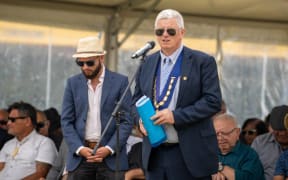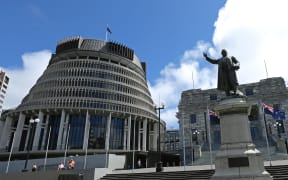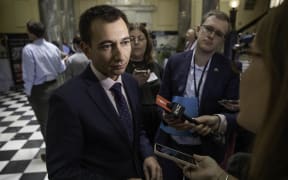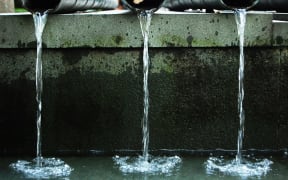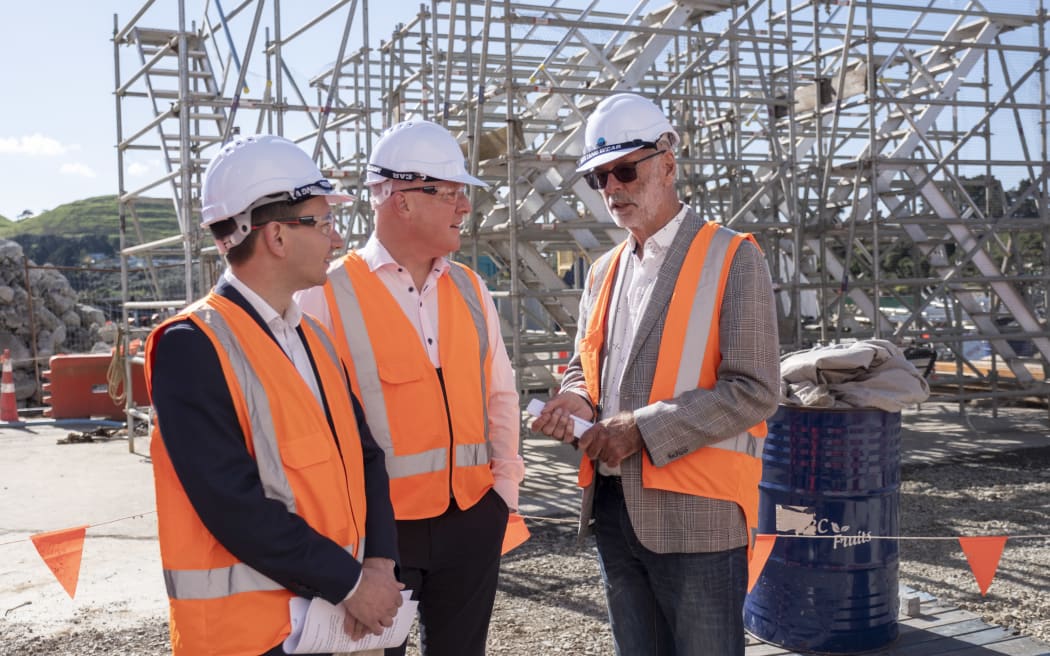
Local Government Minister Simeon Brown, Prime Minister Christopher Luxon and Auckland Mayor Wayne Brown at the announcement of the new water deal. Photo: Supplied / Watercare / Simon Runting
Local mayors are eyeing up Auckland ratepayer's new water deal and considering how it might work in smaller districts.
Auckland Council has struck a deal with the coalition that will see water rates rise by 7.2 percent rather than the 25.8 percent forecast.
Watercare will be able to borrow more money to invest in infrastructure under the scheme with the cost of borrowing spread over a longer period.
Mayors throughout the country have welcomed the deal but are questioning how it might work in smaller districts that need a lot of support.
Read more:
"Auckland has the population to be able to that. How it looks for smaller, rural councils is yet to be decided," Tararua mayor Tracey Collis said.
Whangārei mayor Vince Cocurullo said his district had maintained its water assets over the past two decades but its neighbours were not in the same position.
"It's a great thing that Auckland's managed to do a deal. I would love to see the same option given to other councils around New Zealand as well.
"If they're going to provide deals for Auckland and then flow on to other districts the idea is to make sure that they are affordable deals that the other districts can pay.
"We're well aware we've got two districts around us, the Far North and Kaipara, and they do need assistance as well because they've got a lot of work to be done with their assets."
Timaru mayor Nigel Bowen said Auckland's deal was a good result for its ratepayers and he believed a similar outcome could be achieved for his district.
"I think so and it's going to be quite different across the country. We're working with other councils around what our model looks like moving forward.
"Each council is quite different - we need to have bespoke solutions, and I'm confident that the model that's proposed will work for us moving forward."
Bowen said although cross-subsidising between councils was often suggested as the solution to supporting "orphan councils", there were structural challenges to that approach.
"There always will be some that have funding challenges relative to others and I think there needs to be a bespoke solution, whether that's central government direct funding that.
"Some of those smaller councils still have very low water rates so those areas still need to put their best foot forward before they go cap in hand asking for support."
Labour local government spokesperson Kieran McAnulty has argued Aucklanders would have paid less under his party's now-repealed Three Waters programme.
"The irony here is that the only reason Aucklanders were facing a 26 percent increase was because the government scrapped water reform. Under water reform they were due to face a 2 percent increase."
He said smaller, rural councils would struggle to keep a lid on rising water rates and work with neighbouring districts under the coalition government's Local Water Done Well scheme.
"They've said that only councils that want to work together can work together so any council that's facing significant financial strain, or that has a really low rate-paying base, which is pretty much every rural council, who in their right mind is going to voluntarily join in with them?
"In many councils, we're looking at double-digit rates increases and up to 50 percent of it is solely down to the fact that the government has repealed water reform and not put in a replacement."
Local Government Minister Simeon Brown said the coalition was working at pace to settle solutions for other areas.
"Local Water Done Well was all about local councils putting forward their solutions rather than mandating a co-governed mega entity approach on councils across New Zealand; voters rejected that.
"We're working very closely and very quickly around a range of funding and financing models to support other councils to have access to long term financing so they can make those investments."

